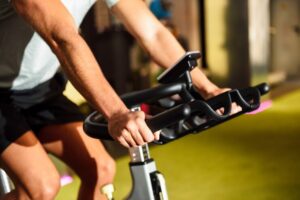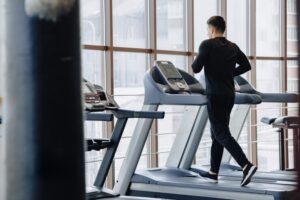It’s not glamorous but it’s the truth; a great ride or race starts with sound cycling nutrition. If you want to see your power meter light up, then focus on fueling the engine before revving it.
I humbly share this information, having dealt with cycling nutrition and weight issues most of my life (for more see I’m Shrinking and I’m Never Going Back. It’s taken me a long time to really understand that eating off the bike directly impacts performance and enjoyment on the bike. Some of the most basic things can be the hardest for me to grasp.
Cycling Nutrition Basic Truth Number 1: The goal of eating is to have the right amount of fuel in your body to power your activities, without a surplus or a deficit (unless you’re planning to lose or gain weight).
A critical factor to consider when choosing a fuel source is your blood sugar. If we are able to keep our blood sugar level even and consistent throughout the day, we will avoid peaks and valleys, which lead to mood swings, lack of energy, and further poor fuel choices. The final piece of the pie (horrible pun) is sleep and recovery.
Cycling Nutrition Basic Truth Number 2: Keeping our blood sugar consistent helps minimize peaks and valleys. How do we fuel our bodies properly and keep blood sugar levels even? Well, first we need to figure out how many calories we need, factoring in for activity. I use a different formula but have found this to be a decent source for basil metabolic rate. Now that we have our daily caloric requirement, we need to plan our meals and day.
Cycling Nutrition Basic Truth Number 4: Consistency pays off big in training and nutrition. Consistency is especially important to blood sugar levels. I’ve found that if I break my daily caloric requirement into 6 small meals a day, my energy level stays high without needing caffeine and my attitude stays positive despite what’s thrown at me. I spread those 6 meals out so I eat every 2-3 hours. One Calorie does not equal another, however. For best results, stick with lean proteins and vegetables and foods that are generally low glycemic, unless it’s directly before or after a hard workout. I also avoid dairy and gluten products because they tend to be inflammatory and just slow me down and make me bloated.
Cycling Nutrition Basic Truth Number 5: Sleep does a body good. Have you ever thought about how impactful sleep is to your body? Until the past year, I hadn’t either. However, the more I read the more I learn how important a good night of sleep is. Research has shown that lack of proper sleep may lead to psychological stress, depression, anger, etc. So what’s the right amount of sleep for you? Start experimenting. While most people fit into the 7-8 hours per night category, you may be different. Try out different amounts to see how you feel. Maybe Monday night you get 9 hours, then Tuesday night 8.5, Wednesday 8 . . . until you get to 6 hours. Keep notes and see what feels the best for you.
If we can do a bit of planning and factor in daily fuel needs, planned activities and sleep requirement we should recognize a significant impact to our riding, running and daily life. I sure have.
Do you have any more questions about weight loss, nutrition, or training? I can help and would love hearing from you. Please e-mail iBikeBlog.
Thank you.




